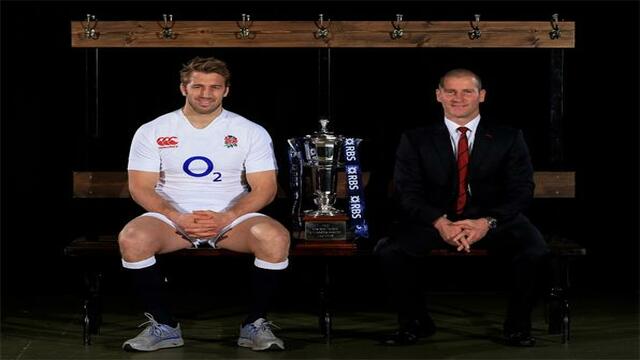The English Rugby Union announced this week, after a lengthy review of its elite department prompted by failure in the 2011 World up, that it was setting up an international performance department.
See Courtney Lawes’ modules on ‘Tackle Techniques’ & ‘Defensive Structures’
It will be headed not by the media’s anointed one, Sir Clive Woodward, but Stuart Lancaster, the England head coach, who only a year ago was in temporary charge of the national side and not expected to survive the Six Nations as Twickenham scoured the world for a permanent successor to Martin Johnson.
The former Scotland coach Jim Telfer, cranking things up for Saturday’s Calcutta Cup encounter at Twickenham, raged against the superiority complex he felt usually infected the English, warning that they were not as good as they thought they were, never mind last December’s victory over a knackered New Zealand.
It was a strange attack given that hubris and Lancaster are mutually exclusive. Telfer perhaps had in mind some of the players who were dubbed the Brat Pack during the last World Cup because of their self-indulgent behaviour, but this is a different era for England in which excess is not tolerated.
The success against New Zealand, as stirring as it was unexpected, has helped make England the favourites for the Six Nations, together with the fact they are playing France at Twickenham and the decline of the champions Wales, who will be without their head coach Warren Gatland for the tournament as he focuses on the Lions.
England have become hard to beat under Lancaster but, apart from a frenzied 10 minutes against the All Blacks, inspired by Manu Tuilagi who will miss the opener against Scotland because of injury, they created little after trouncing Fiji in their opening autumn international and Owen Farrell is a conservative selection at outside-half.
England are building a team for the 2015 World Cup. Although they finished second to Wales in last year’s Six Nations, it was a period of retrenchment after the World Cup campaign and its fall-out in the months afterwards, obduracy rather than inspiration their guiding star.
Too much should not be expected of England. There is still a rawness about them: the starting line-up against Scotland holds a total of 191 caps, the same number as combined total of the Ireland centres, Gordon D’Arcy and Brian O’Driscoll, who earlier in the day will be taking on Wales in Cardiff.
England do have 230 caps sitting on the bench, but their away fixtures this year are more demanding than they were in 2012 when Lancaster’s men started in Scotland and Italy, the two countries in the last five years who have battled to avoid the wooden spoon.
England did win in Paris, showing some enterprise, but it was a day when the French were at their most unfathomable, picking an outside-half with a big boot and little else in a seeming bid to out-bore the English, a strategy that had been shredded by the end of the opening quarter.
This year England are in Dublin, a ground where they have had no success in the Six Nations since 2003, and Cardiff, another arena where experience counts for something. England have a core of richly promising young players, such as Joe Launchbury, Tom Youngs, Tuilagi, Alex Goode and Mako Vunipola, but their progress will be gradual.
Lancaster’s aim is that come the 2015 World Cup the average number of caps in the team will be at least triple what it is now. Making them favourites for the Six Nations is more a reflection on the other countries involved, although France were unbeaten in November and followed an emphatic victory over Australia with successes against Argentina and, less convincingly, Samoa.
The France coach Philippe Saint-Andre had an inconsistent and at times incoherent selection policy last season, but he is developing settled combinations in key areas such as half-back and back row. There is no reason why France should dread visiting Twickenham, a ground where they have in their most recent visits shown their worst side.
Ireland are, as usual, the dark horses. Despite being without the injured Paul O’Connell, Stephen Ferris and Tommy Bowe, they have a wealth of experience and, as in 2009 when they won the Grand Slam, they take on England and France in Dublin.
All the coaches involved have spent the week talking about the importance of making a winning start to develop momentum. A year ago Wales, ravaged by injuries, were unfancied when they went to Dublin but mounted a comeback in the final 10 minutes despite being a man short to set themselves up for the rest of the tournament.
Wales stood out last season because of an ability to create tries in tight matches, but that facility has deserted them since and their attacking play in the autumn was slow, flat and predictable. Dan Biggar has replaced the injured Rhys Priestland at outside-half but, unusually among the leading countries, Wales do not have a second first receiver, surprisingly so for a team intent on introducing an element of surprise.
An Ireland victory in Cardiff would set them up with England to follow. Their final match is in Rome, by which time Italy, a side like Scotland that has come to rely on nuisance value, should be feeling the rigours of a tough campaign with modest resources.
There is no outstanding side. If that does not bother England now, it will if it remains so in the 2015 Six Nations.


